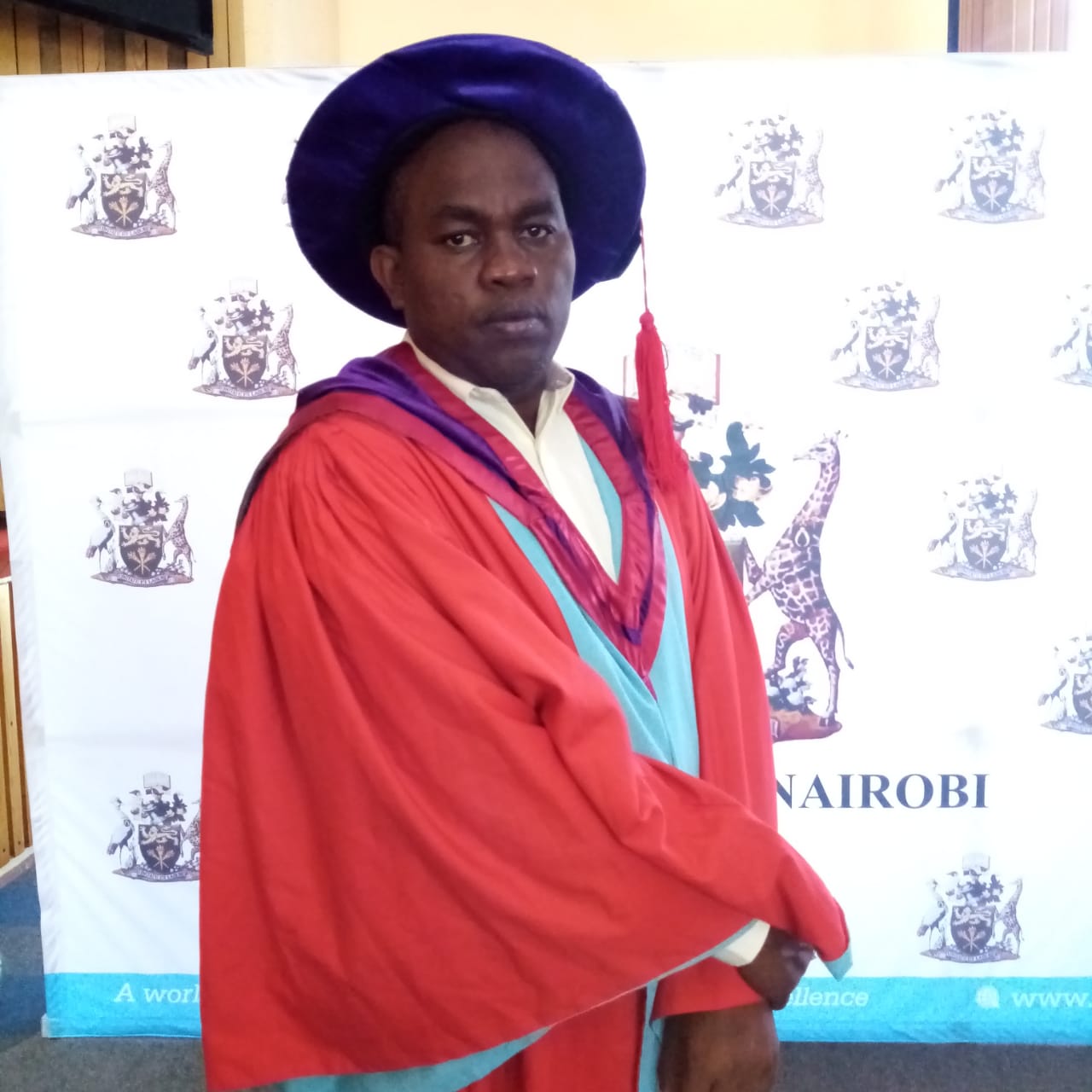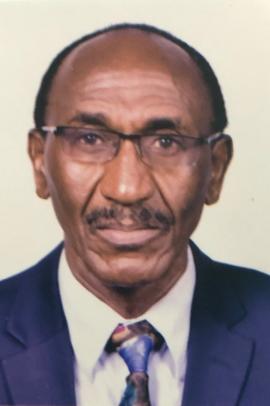Student Short Biography
Solomon Koome is a family man born in Meru County in 1978. He is a Christian, a husband, and a father of three children. He completed his high school education in Meru School in 1998 and joined Moi University between 2000-2004. He acquired a diploma in security management in 2011 from Kenya institute of criminal justice studies and a diploma in biblical studies from international Christian foundations in 2018. Later joined UoN and was awarded a master of Arts in project planning in 2014 and is now a Ph.D. graduand in Project Planning and Management class of 2020 at the same university. Solomon joined Kenya prisons service in 2005 and has risen through the ranks to ss superintendent of prisons. He attended Kenya Government School for a senior management course in 2018. He taught at the Kenya institute of criminal justice and has published widely in peer-reviewed journals.

Thesis Title
SELECTEDINSTITUTIONALREFORM,PARTICIPATORY MONITORING AND EVALUATION,ORGANIZATIONAL CULTURE AND CHANGE OF BEHAVIOR OF INMATES IN CORRECTIONAL FACILITIES IN NAIROBI COUNTY.KENYA.
Thesis Abstract
This study focused on selected institutional reforms, participatory monitoring and evaluation, organizational culture and change of behavior of inmates in correctional facilities in Nairobi County, Kenya. The study objectives were; to examine how health reforms influences change of behavior of inmates in correctional facilities in Nairobi County, Kenya. To assess how infrastructural reforms influences change of behavior of inmates in correctional facilities in Nairobi County, Kenya. To establish the extent to which educational programmes reform influences change of behavior of inmates in correctional facilities in Nairobi County, Kenya. To determine the extent of combined influence of three independent variables on change of behavior of inmates in correctional facilities in Nairobi County, Kenya. To assess how participatory monitoring and evaluation influence the relationship between health reforms, infrastructural reforms, educational programmes reform, and change of behavior of inmates. To assess how organization culture influences the relationship between health reforms, infrastructural reforms, educational programmes reform, and the change of behavior of inmates. The study tested six null hypotheses on whether the relationship among the study variables was significant. The target population was 10,111 individuals spread as 2,953 prison officers and 7,158 inmates. From this population a sample was drawn using a formula totaling to 385 individuals who were picked, spread as 112 prison officers and 273 inmates. Purposive sampling was used to select officers’ in-charge and their deputies. Twelve prison officers on duty were picked randomly from duty roster using prime numbers for focus group discussion from each prison.
Research Supervisors
PROF RAPHAEL ONDEKO NYONJE
&
DR CHARLES MISIKO WAFULA





